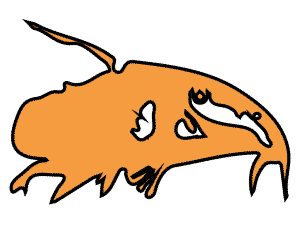Overview Best Aquarium Fish Food
With all the different types of fish you can keep in an aquarium, it's pretty clear that there are a HUGE number of tropical fish foods you can feed your fish.
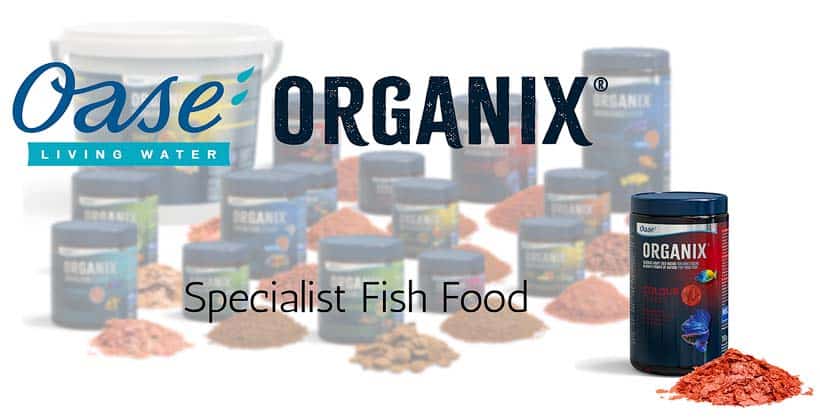
There are fish that mainly eat algae and plants, so we need to feed them "green stuff".
Others are carnivores so we need to give them a lot of "meaty stuff".
There are also omnivores that each pretty much anything that passes by in the water or it can dig up from the substrate.
Another very specialized group are wood eaters that needs roots, and wood containing feed to thrive in our tanks.
I will have separate articles and videos for most kinds of food you can use for your fish. Some of them you can buy in the Local Fish Store (LFS), or the grocery store. Others you can collect your selves in the nature, or you culture or grow them yourselves.
N.B.
Some people, like Kristian, can't use Bloodworms (or any food that contains them) since they are very allergic to them!
Images are coming for every main type of food below.
Flake Food
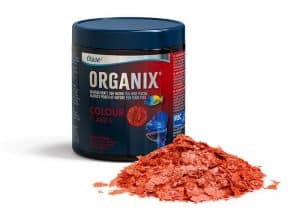
This is one of he most common ones and it comes in hundreds, if not thousands of different forms and brands. They are easy to feed and most often float on the surface for a bit, before they start to sink.
Here are a few of the types available:
- General / Staple / Basic Flakes
- Green / Algae Flakes (Chlorella, Spirulina, Kelp, Vegetables & Phytoplankton)
- Artemia Flakes
- Krill / Shrimp Flakes
- Bloodworm Flakes
- Tubifex flakes
- Blackworm Flakes
- Earthworm Flakes
- Beef Heart Flakes
- Egg Yolk Flakes
- Color Flakes
- Vitamin Booster Flakes
- Bio Flakes
- Garlic Flakes
- Discus / Guppy / Betta / X Flakes
- Malawi / Tanganyika Flakes
- Blends of Flakes
Freeze & Sun Dried Food
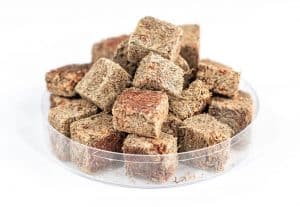
There are a few of these to choose from too. Some of the ones available are:
- Freeze dried Tubifex
- Freeze dried Blackworms
- Freeze Dried Bloodworms (be aware that some people are very allergic to bloodworms!)
- Freeze Dried Mysis Shrimp
- Freeze Dried Brine Shrimp
- Freeze Dried Arctic Copepods
- Freeze Dried Rotifers
- Dried Krill
- Dried Black Soldier Fly Larvae
- Dried Daphnia
Frozen Food
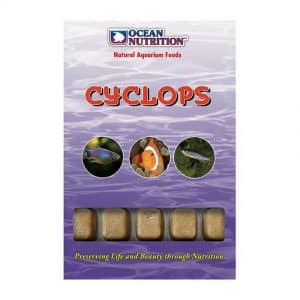
This is also one of the most common ones and they come in maybe a hundred different forms and types. Some are:
- Frozen Tubifex
- Frozen Blackworms
- Frozen Bloodworms
- Frozen White Mosquito Larvae (Glass worm)
- Frozen Black Mosquito Larvae
- Frozen Krill, Mysis & Gammarus Shrimp
- Frozen Prawns
- Frozen Rotifiers
- Frozen Cyclops, Bosmina & Daphnia
- Frozen adult Brine Shrimp (also enriched)
- Frozen Copepods
- Frozen Muscles & Cockles
- Frozen Discus Food
- Frozen Fish, Shrimp & Lobster Eggs
- Frozen Fish Meat
- Frozen Micro & Red Plankton
- Frozen Squid
- Frozen Algae
- Frozen Vegetable mix (e.g. Peas, Carrots & Spinach)
- Frozen Beefheart mix
- Frozen Shrimp mix
Pellets & Granules
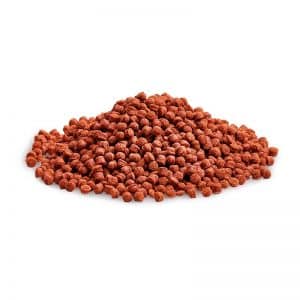
Fish food can take many shapes and forms, and there is quite an overlap of what is called what depending on brand.
This group usually consists of round granules ranging from vey small for fry and small tetras and rasboras, to large for big cichlids.
Wafers & Tablets
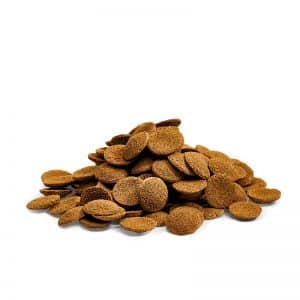
Fish food can take many shapes and forms, and there is quite an overlap of what is called what depending on brand.
This group usually consists of discs or round tablets that usually sink to the bottom. Perfect food for Plecos, other catfish, and loaches.
Comes in Vegetable versions as well as meatier ones.
Wafers (Crisps / Tablets)
- Spirulina / Algae / Spinach / Veggie / Seaweed
- Shrimp / Krill
- Carnivore
Sticks
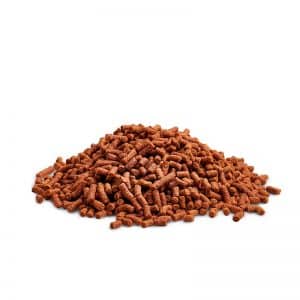
Longer, extruded type of fish food. Comes in very small sizes up to a diameter of about 1 cm (1/2 inch).
- Sticks with Wood
- Earthworm Sticks
- Blackworm Sticks
- Bloodworm Sticks
- Beef Heart Sticks
- Brine Shrimp Sticks
- Plankton Sticks
- Carnivore Sticks
Live food
This can be divided in to three main groups:
- Self Cultivated
- Collected in the wild
- Store bought
Cultivating your own live food
I will write articles about most of them in a bit. The main foods you can cultivate are:
- Nematode worms like Micro worms, Banana Worms, Walter Worms & Vinegar Eels
- White Worms like Grindal Worms (not Grindle or Grindel!)
- Earthworms
- Blackworms & Tubifex Worms
- Dero Worms
- Brine Shrimp (Artemia) both as newly hatched and as adults
- Fruit Flies
- Mosquito Larvae (black and white)
- Small shrimp like Hyalella sp.
- Moina / Daphnia
- Copepods
- Phytoplankton / Green Water
- Infusoria / Protozoans / Paramecium
- Spirulina
Collecting live food
I will have articles about most of them coming in a bit. The main foods you can collect your selves are:
- Earthworms
- Blackworms & Tubifex Worms
- Fruit Flies
- Mosquito Larvae (black and white)
- Small shrimp like Gammarus sp.
- Moina / Daphnia
- Phytoplankton / Green Water
- Infusoria / Protozoans / Paramecium
Local Fish Store bought live food
Articles about most of them are coming in a bit. The main foods you can buy in a store (also try shops for lizards, frogs etc.), are:
- Earthworms
- Blackworms & Tubifex Worms
- Brine Shrimp (Artemia) both as newly hatched and as adults
- Fruit Flies
- Mosquito Larvae (black and white)
Rarely you can find the following in specialty shops:
- Nematode worms like Micro worms, Banana Worms, Walter Worms & Vinegar Eels
- White Worms like Grindal Worms (not Grindle or Grindel!)
- Small shrimp like Hyalella sp.
- Phytoplankton / Green Water
- Infusoria / Protozoans / Paramecium
Fresh food
In this group I put Fresh, Frozen or Preserved (canned in water, in brine etc.) foods like:
- Prawns / Shrimp
- Muscles and other Moluscs
- Squid
- Salmon / Cod / Whitefish
- Crab
- Vegetables like spinach, broccoli, etc.
Fish Gel Food Premixes
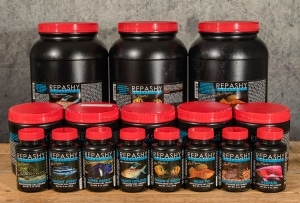
This type of food consists of a power that you mix with boiling water, leave it to set. You then cut it into cubes/strips and feed it to your fish. It keeps in the fridge for a couple of days but you can also freeze and use it over several months.
You can also dry it and make a jerky-type fish food. Dry it in an oven or dehydrator at about 65°C (150 °F) for 8 to 12 hours or until it is completely dry.
Repashy Superfoods from USA
The dominating one in this group is Repashy. They usually come in:
- 85 g (3 oz) jars
- 170 g (6 oz) jars
- 340 g (12 oz) jars
- 2 kg (4.4 lb) jars
They have the following types of foods:
- For all Rainforest Species with mostly Black Soldier Fly Larvae Meal and Krill Meal but also some fruits. It is called Igapó Explorer
- For Invertivores (eats invertebrates) called Bottom Scratcher
- For Woodeaters called Morning Wood
- Carotene rich food for intermittent feeding called Redrum
- For Insect eaters (75% insect meal) called Grub Pie Fish
- For Community tanks (Omnivores) called Community Plus
- For Aufwuchs (algae and small living organisms) eaters called Soilent Green
- For Algae eaters called Super Green
- Conditioning food for Insectivores and Carnivores called Spawn & Grow with higher fat contents
- For Goldfish & Koi fish called Super Gold
To read more about Repashy Superfoods go here: Repashy Superfoods for Aquarium Fish.
Dajana Pets from Czechia
Dajana has 2 types:
- BioGel Omni for Omnivores
- BioGel Herbi for Herbivores
They come in 5 x 10 grams and maybe in 1 kilo bags.
Tropical from Poland
A third brand is Tropical that has 3 types of gel food:
- Gel formula for Omnivorous fish
- Gel formula for Herbivorous fish
- Gel formula for Carnivorous fish
They come in a plastic jar with 3 bags of 35 g and gives about 300 grams of finished product.
Plants & Algae
There are lots of plants and algae products you can use for your Herbivore fish. Some you can buy in the shop, other you can grow your selves. The advantage of growing it is that there are no pesticides on them. I have wiped out whole spawns of Rineloricarias and Sturisomas by feeding them non organic lettuce!
- Lettuce of all kinds: grow / buy (organic)
- Peas & String peas: grow / buy (preferably organic)
- Cucumber / Zucchini: grow / buy (preferably organic)
- Spinach: grow / buy (preferably organic)
- Sheets of Nori / Kelp Algae: buy
- Spirulina, Kelp & Chlorella Powder: buy
Wood
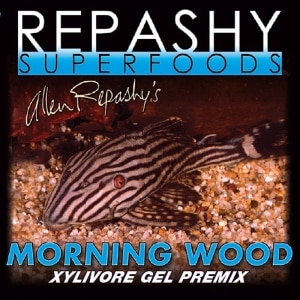
Some Plecos need wood in their diet to survive.
It can be provided by keeping roots and pieces of wood in your tanks. Make sure that they are soft wood and that you have several types of wood in there.
There is also a Repashy food called Morning Wood and some Algae based Pellets / Wafers that contains wood.
More to come.
"Probiotic" Food
Some food manufacturers add some additives to their fish food and add the "Probiotic" label to it.
Some of the things they add are:
- Beneficial Bacteria
- Garlic
- Paprika
Will expand on this when I've looked more in to this type of food.
Fry Food
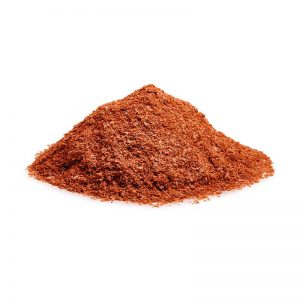
This is not really a group of it's own. So many foods can be used for fry as long as it's very small.
Powdered fry food
GP Diets (Golden Pearl Spheres) is one of my favorites, but I also use Kelp, Chlorella or Spirulina Algae powder.
There are also foods from Sera like Sera Micron Nature, Protogen by Hobby, and Liquifry by Interpet.
Newly hatched brine shrimp
One of the best foods, hands down. If you don't hatch brine shrimp and breed fish, you must start now!
Paramecium and other infusoria
If you can get hold of a starter culture this is a great first food for the really small fry that can't take artemia from the start. Species like Rainbowfish, some Tetras and Barbs pretty much need this the first couple of days.
You can get a starter culture of Paramecium from us if you are in central Skåne in Sweden.
Worms
Walter / Micro / Banana Worms and Vinegar Eels are all perfect for the smallest fry.
Decapsulated Artemia
These are unhatched and shelled Artemia Eggs. They should be fed as they are and will float for a while. Perfect for tetras, rainbowfish etc. that feed at the surface.
